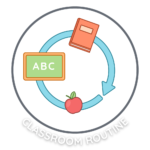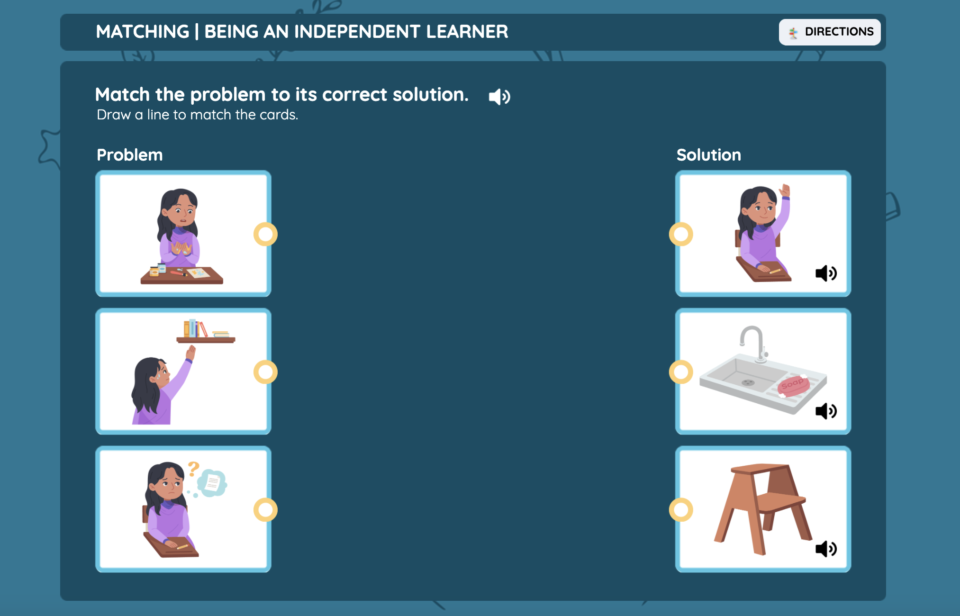
Independence is a vital skill for preschoolers as they begin to navigate the world around them. Teaching young children how to be independent helps build their confidence, self-esteem, and problem-solving abilities. Everyday Speech offers a digital matching activity for fostering independence in preschoolers in an engaging and interactive way. This blog post will explore how preschool teachers can effectively use this Activity for Fostering Independence in Preschoolers to promote self-reliance and autonomy.
Why Independence Matters
Developing independence in preschoolers is crucial for several reasons:
- Builds Confidence: Encourages children to trust their abilities and make decisions.
- Enhances Problem-Solving Skills: Teaches children to think critically and find solutions.
- Promotes Responsibility: Helps children learn to take care of themselves and their belongings.
- Supports Social and Emotional Development: Encourages children to interact confidently with peers and adults.
Introducing the Digital Matching Activity
Everyday Speech’s digital matching activity is an excellent tool for teaching independence to preschoolers. The activity involves matching images of daily tasks and routines, helping children understand and remember the steps involved in completing them independently. This visual and interactive approach makes learning fun and effective for young learners.

Lesson Plan: Using the Digital Matching Activity to Teach Independence
Objective
By the end of the lesson, students will be able to identify and complete various daily tasks independently using the digital matching activity.
Materials Needed
- Access to Everyday Speech’s digital matching activity
- A computer or tablet
Duration
20-30 minutes
Activity Steps
1. Introduction to Independence (5 minutes)
Begin the lesson by discussing what it means to be independent. Explain that independence means doing things on your own and taking care of yourself. Use simple language and examples that are relevant to their daily experiences, such as getting dressed, brushing teeth, and cleaning up toys.
2. Introducing the Digital Matching Activity (5 minutes)
Introduce the digital matching activity from Everyday Speech. Explain that they will match pictures of different tasks with their corresponding steps. Show them how to use the activity on the computer or tablet and explain that this activity will help them learn how to do things by themselves.
3. Guided Practice with the Activity (5 minutes)
Have the students sit comfortably and guide them through the steps of using the digital matching activity. Allow them to take turns matching tasks and steps, providing support and encouragement as needed.
4. Group Discussion and Reflection (10 minutes)
After practicing the tasks, gather the students for a group discussion. Ask questions like:
- What tasks do you think you can do by yourself today?
- How would it feel to complete these tasks on your own?
- Why is it important to be able to do things by yourself?
Encourage students to share their thoughts and reflect on their experiences. If using reflection journals, have them draw or write about a task they learned to do independently.
Unlock ALL of our preschool materials by signing up for your free trial today – no credit card required!
Access the full Social Communication Curriculum HERE!
Instant access to thousands of no-prep social skills activities, over 1000+ video lessons, and engaging games designed to enhance learning and development.
Conclusion
This activity for fostering independence in preschoolers supports a fun and interactive learning environment that promotes self-reliance and confidence. Through guided practice, discussions, and hands-on activities, students learn to complete daily tasks independently, building essential life skills that will serve them well beyond the classroom. Incorporating visual aids, supportive environments, and regular practice reinforces these lessons, helping children grow into capable and self-assured individuals. For more resources and tips on teaching independence and other vital skills, stay tuned to our blog.
Sample Video
Students learn best from watching real students their own age model skills. Try out this sample video lesson. We offer our entire Social-Emotional Learning platform free for 14 days here!
Related Blog Posts:
Everyday Speech Pre-K Materials Are Here!
Fun and Engaging Social Skills Activities for Preschoolers
Free Preschool Self-Regulation Skills Material





